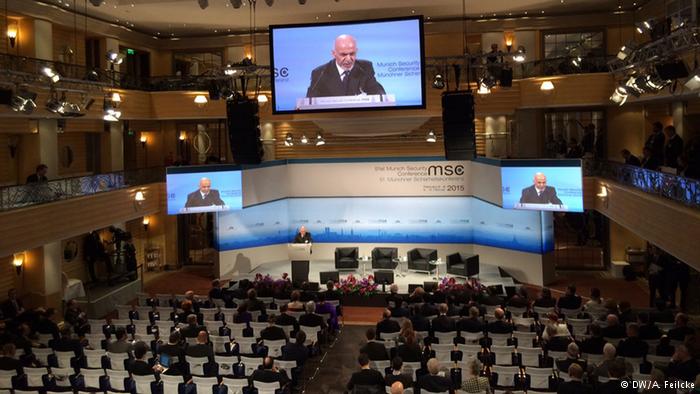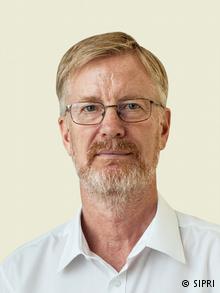Munich Security Conference
“The more sharing, the better”
The Munich security conference creates a framework in which informal meetings between difficult partners. The the world needs in these difficult times, says SIPRI-Chef Dan Smith in the DW-Interview.

Deutsche Welle: As if there were not already enough conferences, summits and forums such as G7, G20 or even a major UN conferences such as the recent climate change conference in Paris, there are also privately organized conferences. At the Munich security conference this year, nearly 30 heads of state and government, almost 70 Foreign and defence Ministers and five Directors of the intelligence services. Why do they come to Munich?
Dan Smith: The charm of smaller Meetings like the Munich security conference is that the people in a less formal setting can share – without the rigor of a communiqué to be published must be such as at the end of a G7 or G20 summit. This gives the participants more freedom for confidential meetings and exchanges beyond the Protocol. On the other hand: The larger and high-level to occupy these conferences are, the more the media are perceived, the more there is the danger that they are just Exercises in competing public Relations.

Also in Munich: Dan Smith
We live in the digital, in the information age. How important are Meetings like the one in Munich because today, still, in order to know how the other parties think?
In this regard, are the large podiums less significant than the small Meetings under the “Chatham House”rules, with a limited number of people or the opportunities for informal, direct exchange. Even in the digital age there is no substitute for Meeting face to face – this is true for any Form of diplomatic processes or negotiation processes. Even if our means of communication is still technically so advanced will be like, we be getting real Meeting between the people in need.
From Russia come in this year, two high-ranking politicians to Munich: Prime Minister Dmitry Medvedev and foreign Minister Sergei Lavrov. Characterized as a foreign policy Offensive in Russia?
Russia has always placed great value on, for his foreign policy perspectives to advertise. And with all the decision-makers and influencers on-site offers the Munich security conference for a platform, the Russians hardly can resist. Obviously, there are both in Russia as in the West of great concern over the dramatic deterioration of relations between the two sides during the last three years. And whatever you analyzed, what are the points always each side to support their Position leads – the more sharing, the more contact there is, the better. Therefore, values of I as a positive sign.
In Munich, are also high-ranking officials from Iran, from Saudi Arabia, Egypt and Iraq expected. Could be in Munich the momentum to be generated for improvement of the situation in Syria?
This is a highly speculative question. But if I’m on the speculation of the inlets, I would say: Saudi Arabia and Iran are not yet at the point where formal contacts between the two governments are possible. But there is always a quiet diplomacy in the Background – and the likelihood is great that countries or governments, with the two antagonists are associated, Saudi Arabia, and Iran to encourage informal contacts.
The title of the conference is pretty duster: “Infinite crises, the Ruthless destroyer, Helpless protector” (“Boundless Crisis, the Reckless Spoiler, Helpless Guardians”). The Munich security conference could hardly have a more pessimistic title. If the security analysts conference call: How far are we from the slide of the world into the Chaos away?
I believe and I hope, this title was for the conference is selected so that the political leaders on all sides of the various conflicts recognise that they are in a process are involved, the enormous risks for the future of the poses. The change in the power structures of the world during the last one and a half decades has created a Situation in which international leaders have problems of their relationships in problemlösender way to manage. I hope the Konferenztitel is as a Wake-up call meant. In my opinion, we are not yet at a point at which the title is an accurate description of today’s world. But elements of it are there: If not limitless crisis, but overlapping crises. And then there are reckless destroyers. But there are also protectors who do something in order to preserve the peace and the better things to keep in balance. We are not yet at the abyss. But you should be clear about this: If we can’t make it, some of the major crises to get a grip, then this could be the title in a few years fit.
Dan Smith is the Director of the Swedish Friedensforschungsinstituts SIPRI.
The Interview was conducted by Matthias von Hein.
